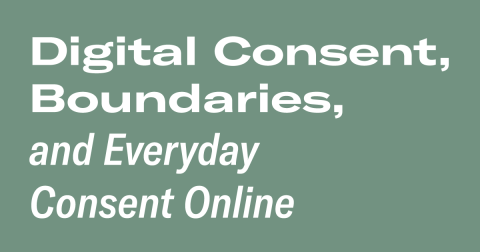- Dec 02, 2021
- Sara Mishina Kunz
The last year and half has shown me just how many skills I’ve developed since experiencing trauma. For many of my friends and family, I’m the person to go to when sh*t hits the fan. “Hey you used to be a mess, maybe you can help?” Needless to say, I’ve gotten a lot of phone calls since April 2020.
- Dec 02, 2021
- Melinda Sampson
Human trafficking, at its most basic level, is the exploitation of a person’s vulnerability to gain something of value. When we look at marginalized communities, vulnerabilities increase exponentially.
- Dec 02, 2021
- Baonam Giang
Xenophobia and anti-Asian sentiment are not new; however, they have been on the rise since the outbreak of the COVID-19 pandemic.
- Dec 02, 2021
- Amanda Barnes
2021 saw an explosion of #MeToo conversations in the brewing and hospitality industry. The Instagram testimonials of one user, Ratmagnet, fueled many survivors to come forward and tell their stories.
- Dec 02, 2021
- Dr. Erin Pritchard
Lockdown, as a result of the global pandemic, has not changed much for me, except to make me reflect on my own behaviours. Non-disabled people protesting about lockdown restrictions, do not know how privileged they are. After lockdown they can go back to normal, but this is my normal. For a long time I have restricted when and where I go in order to reduce the amount of unwanted attention I receive. As a person with dwarfism, every outing will include the risk of being stared at, pointed at, laughed at, called names, or even photographed.
- Dec 02, 2021
- JL Heinze
The past two years have been a period of rapid change. Since the onset of the COVID-19 crisis, NSVRC has been paying keen attention to the ways in which the pandemic has impacted not only survivors, but also service providers, advocates, activists, and communities at large. In remaining loyal to the importance of showcasing community members’ voices and not speaking on their behalf, the following guest blog series explores the different narratives within the social justice community and community working to end sexual violence.
- Nov 19, 2021
- JL Heinze
This list aims to provide a comprehensive array of contacts, support resources, and recommended materials which members of the transgender community and their allies may find helpful.
- Nov 17, 2021
- NSVRC
Creating a pathway for respectful online spaces with consent
From apps to online dating websites, there are many ways people are connecting online. Although you aren’t talking face-to-face with someone, consent still needs to be communicated along the way. You should always consider how your actions might make another person feel and ask questions if you don’t know.
- Nov 11, 2021
- Melissa Powers
This post highlights books and films regarding Native Americans and their struggle for justice.
- Oct 26, 2021
- JL Heinze
Like many holidays, Halloween can be a triggering time for survivors. This holiday also poses unique risks and barriers when it comes to preventing sexual violence. This isn’t just due to the fact that Halloween parties and gatherings may create environments with increased rates of sexual assaults and harassment, but it is also due to trauma triggers such as dark lighting, fearful screams, obscuring masks, and graphic and violent imagery that are hallmarks of this time of year.
Pagination
- Previous page
- Page 14
- Next page










